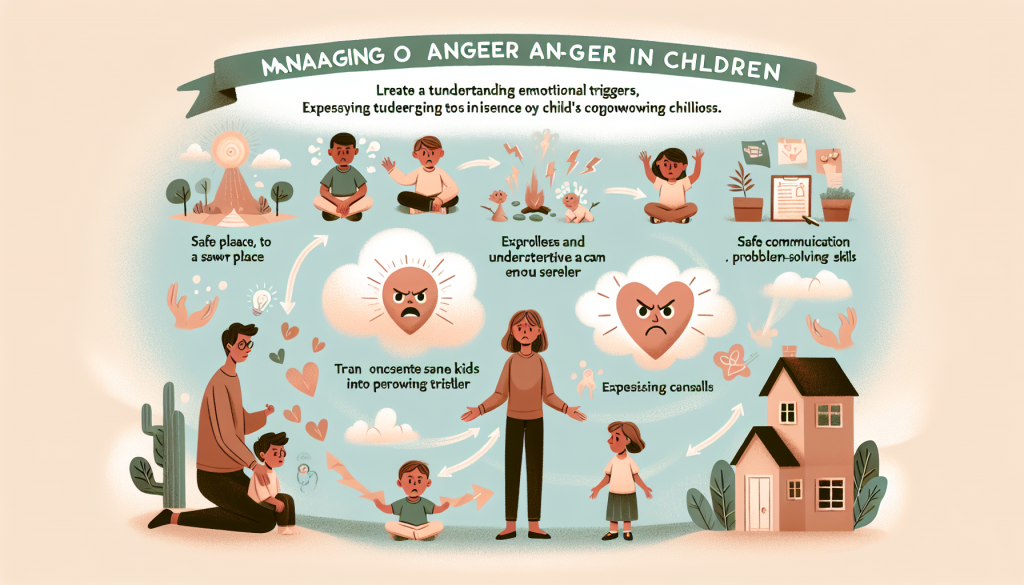How to Manage Anger in Children: A Guide for Parents
Anger is a powerful emotion, and when it comes to children, it can often appear overwhelming and unmanageable. As parents or future parents, understanding how to manage anger in children is crucial for fostering a nurturing environment where your child can thrive. Not only does managing anger help with emotional regulation, but it also strengthens the parent-child bond and equips your child with essential life skills. Let’s delve into effective strategies that can transform anger management into a positive growth journey for both you and your child.
Main Points
Anger is a natural emotion, but it becomes problematic when children lack the skills to express it constructively. According to cognitive-behavioral therapy (CBT), which is widely used in child psychology, addressing the psychological needs of safety, autonomy, and self-expression is essential for managing anger effectively.
- Understanding Emotional Triggers: Identify what situations or changes spark anger in your child. Is it a lack of autonomy in decision-making? Or perhaps a need for safety and predictability? By understanding these triggers, parents can help children learn to anticipate and manage their emotions more effectively.
- Role of Cognitive-Behavioral Therapy (CBT): CBT techniques can be instrumental in teaching children to recognize and alter negative thought patterns. Encourage your child to express their feelings and thoughts, helping them understand the connection between thoughts, emotions, and behaviors.
- Emotional Regulation through Self-Expression: Providing children with safe outlets for self-expression, such as drawing, storytelling, or role-playing, can help them process their emotions. This satisfies their psychological need for self-expression, reducing the frequency and intensity of angry outbursts.
Practical Recommendations
Here are some practical tips that parents can use to manage anger in children more effectively:
- Model Calm Behavior: Children often mimic the behavior of adults. Demonstrate calmness in stressful situations to teach your child how to respond to anger without escalating it.
- Establish a Safe Space: Create a designated “calm corner” where your child can retreat to when they feel overwhelmed. This space should be filled with comforting items that help them self-soothe.
- Use Positive Reinforcement: Praise your child when they manage to control their anger appropriately. Positive reinforcement encourages them to repeat the desired behavior.
- Encourage Open Communication: Regularly engage in open discussions about feelings. Encourage your child to express their emotions verbally, ensuring they feel heard and understood.
- Teach Problem-Solving Skills: Guide your child in finding constructive solutions to problems that trigger anger. This enhances their autonomy and equips them with coping strategies.
Conclusion
Managing anger in children is not just about curbing outbursts; it’s about equipping them with skills for emotional regulation and resilience. By understanding their psychological needs and employing effective strategies, parents can transform moments of anger into opportunities for growth and connection. Remember, with patience and consistent effort, you can help your child navigate their emotions, fostering a happier and healthier family dynamic.
For more parenting advice and resources on child psychology, explore our articles at Child Mind website.

